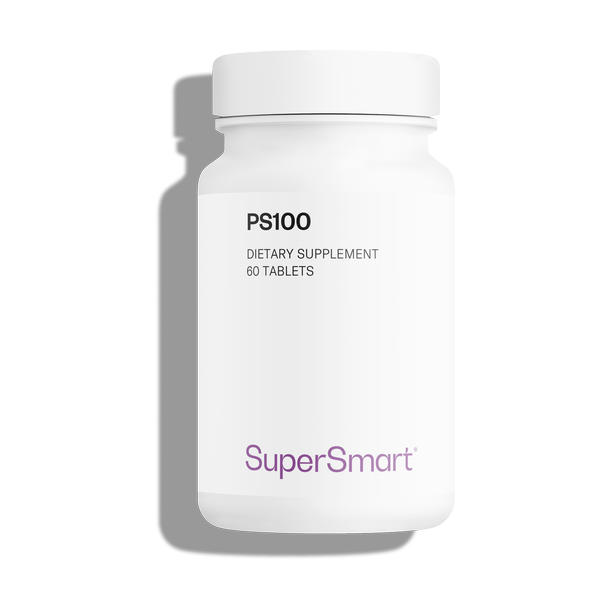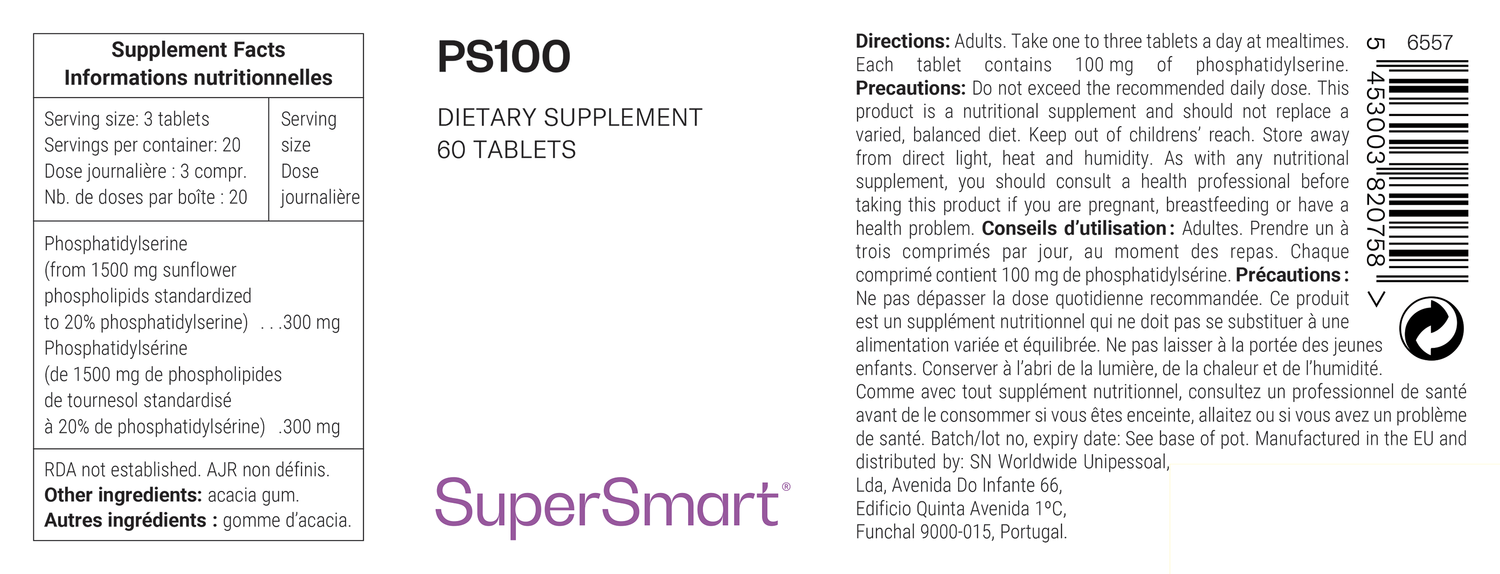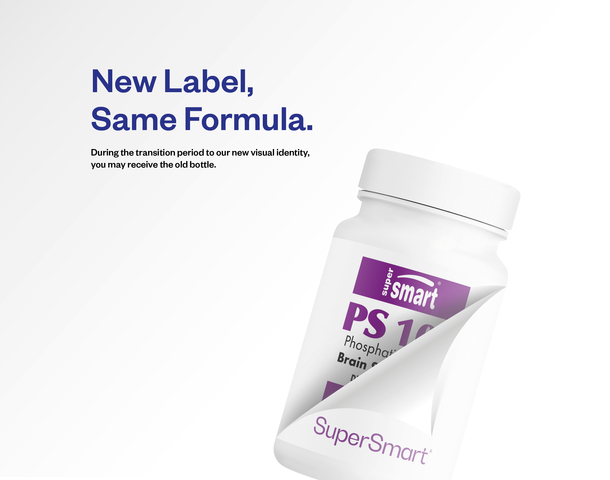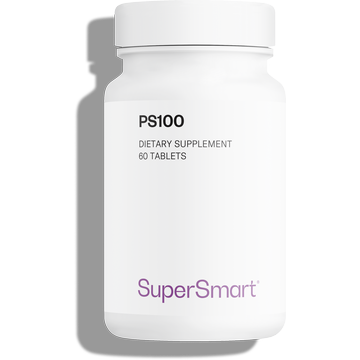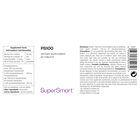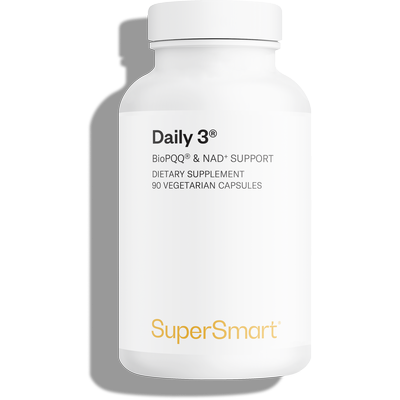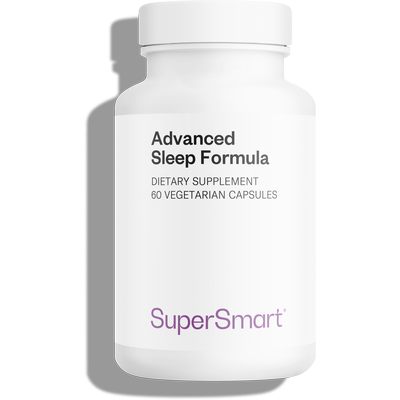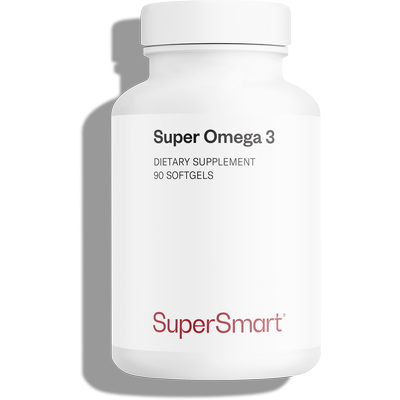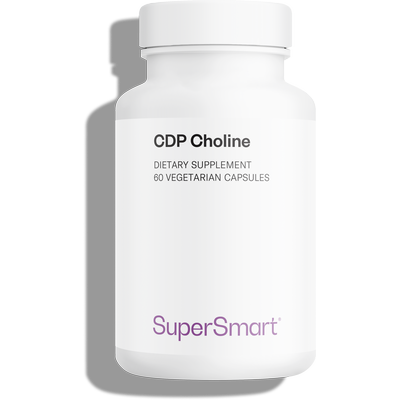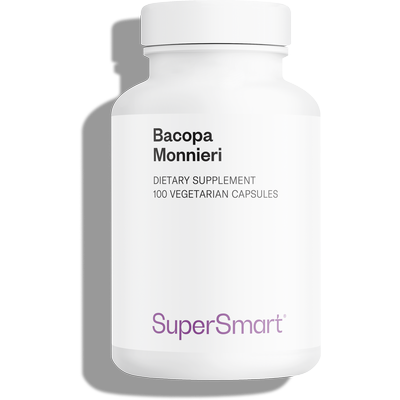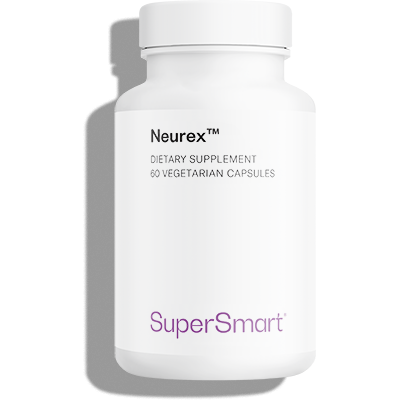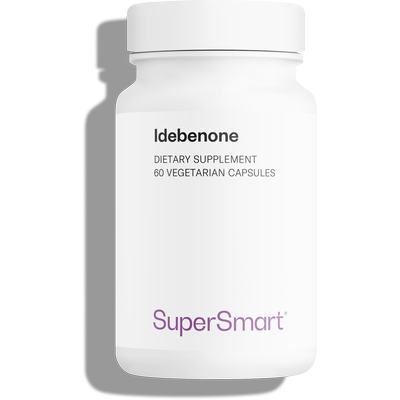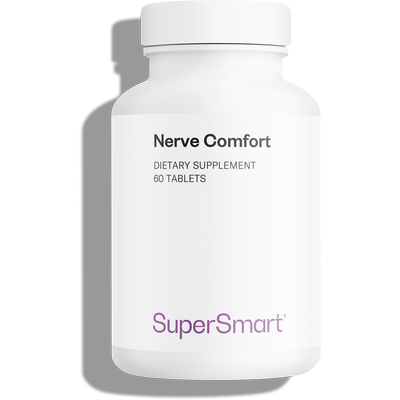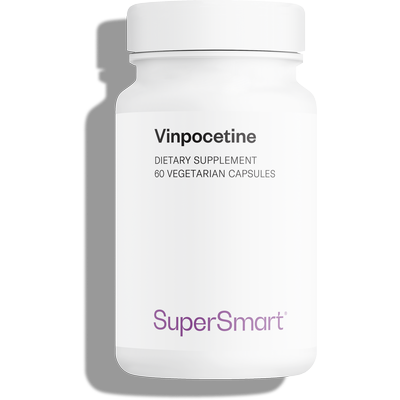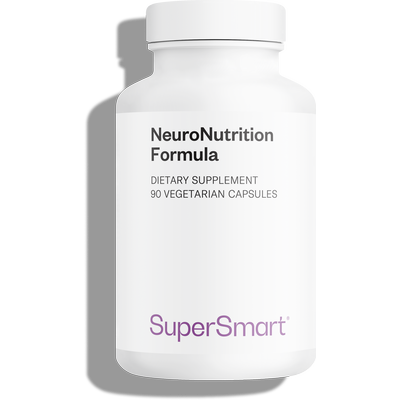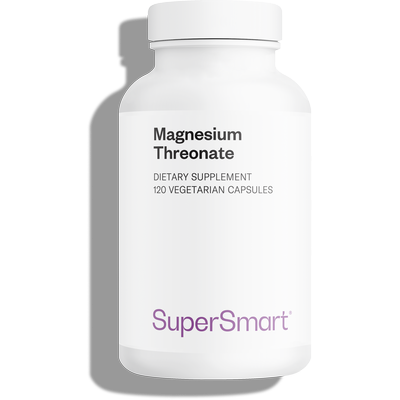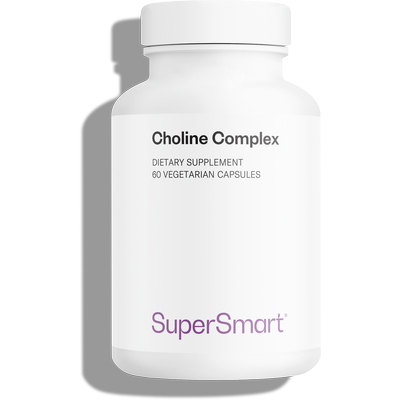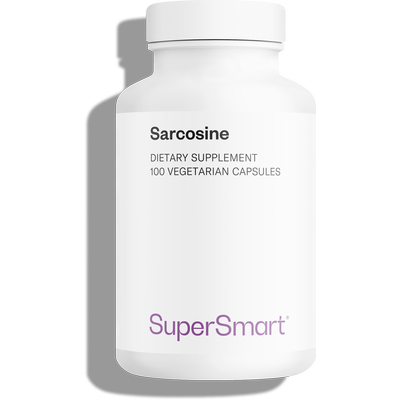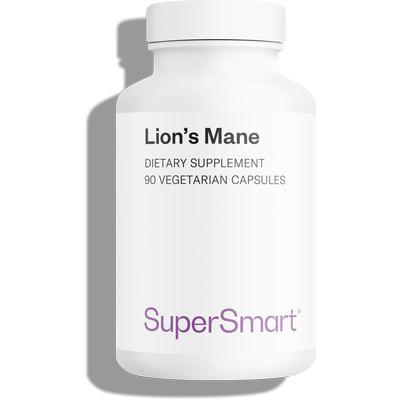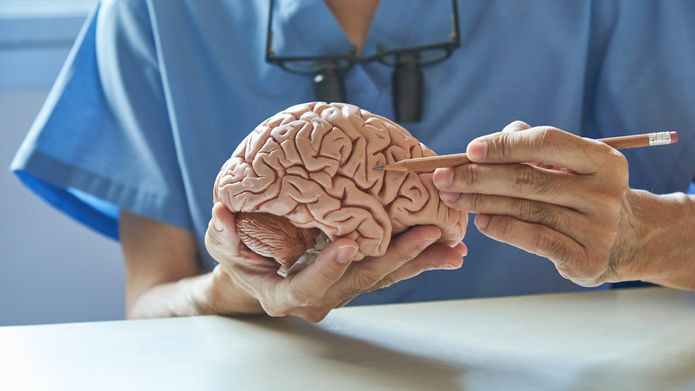Complete your selection
PS 100 is a supplement containing phosphatidylserine, a lipid component essential to the membranes of brain cells (neurons). It helps maintain membrane flexibility, which is essential for synaptic plasticity and neurotransmission and thus optimisation of learning and memorising.
What is phosphatidylserine (PS)?
Phosphatidylserine is part of the phospholipid family, major components of the membranes surrounding the body’s cells.
It is highly concentrated in synapses, especially in the inner leaflet of the lipid bilayer, within the structures responsible for memory and concentration processes. It is present there with DHA, an omega-3 fatty acid which helps maintain optimal brain function.
Together, they provide a level of membrane fluidity to brain cells, and to all the body’s cells in general.
Why is it important to maintain supple, fluid cell membranes?
Cell membranes are very thin fatty layers (it would take 8000 of them to equal the thickness of one sheet of paper). But they are very important as they enable cells to communicate with each other, to bind together, to secrete substances such as enzymes, hormones and mucus, and to transmit nerve signals.
They are composed of two thin layers of molecules in constant motion: phosphoglycerolipids. These molecules - some of which are better than others - are assembled by the body from materials both produced internally and obtained from the diet. EPA and DHA, two essential fatty acids found almost exclusively in oily fish and which cannot be produced by the body, are particularly valuable (1).
When EPA and DHA are combined with phospholipids such as phosphatidylserine or choline, brain cell membranes have considerable fluidity, which optimises the conduction of electrical impulses and the speed with which brain cells transmit signals to each other. Conversely, when EPA, DHA and good quality phospholipids are lacking, the membranes appear rigid and do not facilitate good brain function.
Why supplement with phosphatidylserine?
As we age, the brain undergoes irreversible damage: lost neurons are not replaced, dendritic arborisation decreases, neurotransmitter synthesis deteriorates, receptors diminish…
To counter this decline and compensate for age-related cerebral changes, the brain modifies the form and size of neurons as well as of glial cells (which support the neurons by secreting various factors that help them survive). To do that, it has to build new cell membranes and adapt existing ones, using phospholipids, and in particular, phosphatidylserine, the main phospholipid in brain cell membranes.
Though the body is able to produce phosphatidylserine, the process is energy-intensive and can be very slow in the case of chronic illness or accelerated ageing. But the fall in phosphatidylserine levels in the brain is clearly associated with a a decline in cognitive function, particularly memory.
The problem is that in terms of dietary sources, it’s only mammal brains that contain it naturally. And these are largely no longer eaten, primarily because of the fear of contracting bovine spongiform encephalopathy (mad cow disease).
What is in it PS 100
Any questions?
We strongly recommend combining phosphatidylserine (PS) with a DHA supplement.
Over time, the fats in these two supplements will become incorporated into your cell membranes. This is a slow process: it happens at the rate at which membranes are gradually replaced, which is imposed by your body. So don’t expect to see amazing benefits after two days - you’ll need to wait several weeks for the full effects of fluid membranes to be felt.
Alongside this supplementation, we’d also recommend adopting the following measures:
- Make sure you get at least 7 hours’ sleep a night. Lack of sleep is a neurological disruptor that can impair cognitive ability: it’s when we’re asleep that memory consolidation takes place.
- Take regular exercise. Numerous studies have shown that staying physically active has a positive effect on memory and the ability to memorise, especially in older age.
- Eat at least five portions of fruit and vegetables a day, as well as foods rich in omega-3 and choline: oily fish, wheatgerm, eggs, almonds, broccoli…
- Maintain a good social life, full of intellectual stimulation. Contact, exchanges and debates with other people promote good memorisation and reduce memory problems.
- If the signs of cognitive decline are already apparent, or if you have recurrent memory problems, consider taking other synergistic supplements for a period of 3 months such as Huperzine A, an alkaloid extract of a medicinal plant, a standardised ginkgo biloba extractbacopa monnieri extract, which has been extensively studied by the scientific community for its ability to increase certain neuro-molecular mechanisms involved in brain cell connections (4-5).
september 11 2020
Good product
march 10 2024
**********
may 2 2019
EXCELLENT PRODUIT
july 30 2018
Es wirkt , schon nach 30 Tage.
july 29 2018
Non si possono percepire i risultati in poco tempo, lo assumo da poco
Need help?
You may also like
